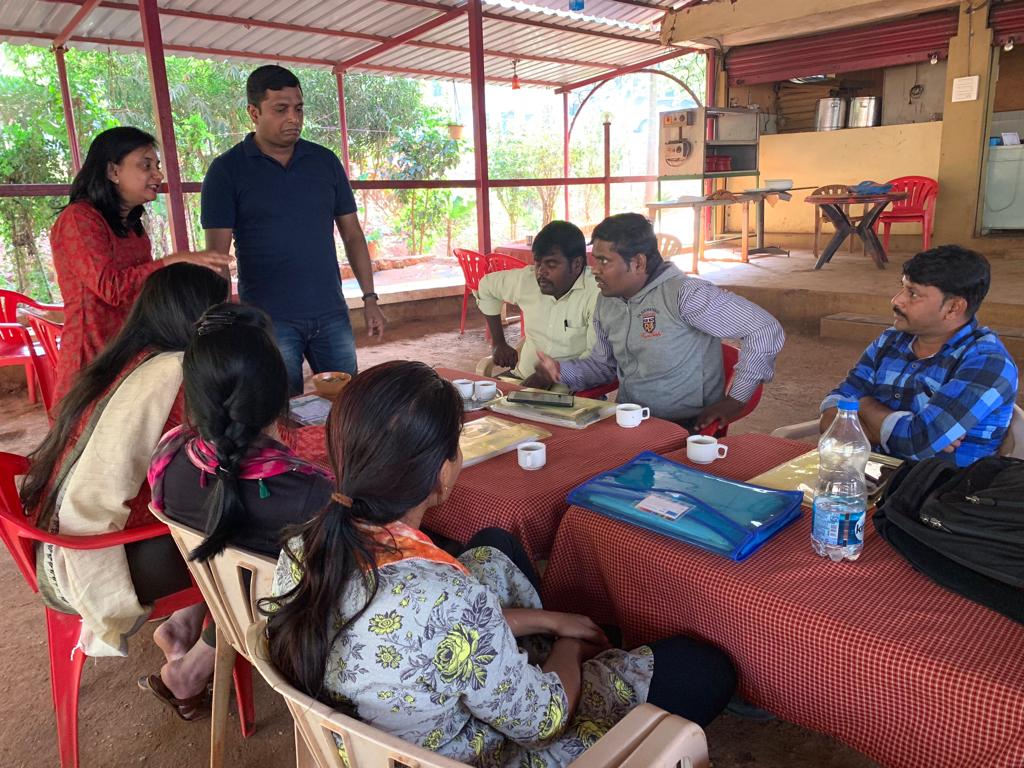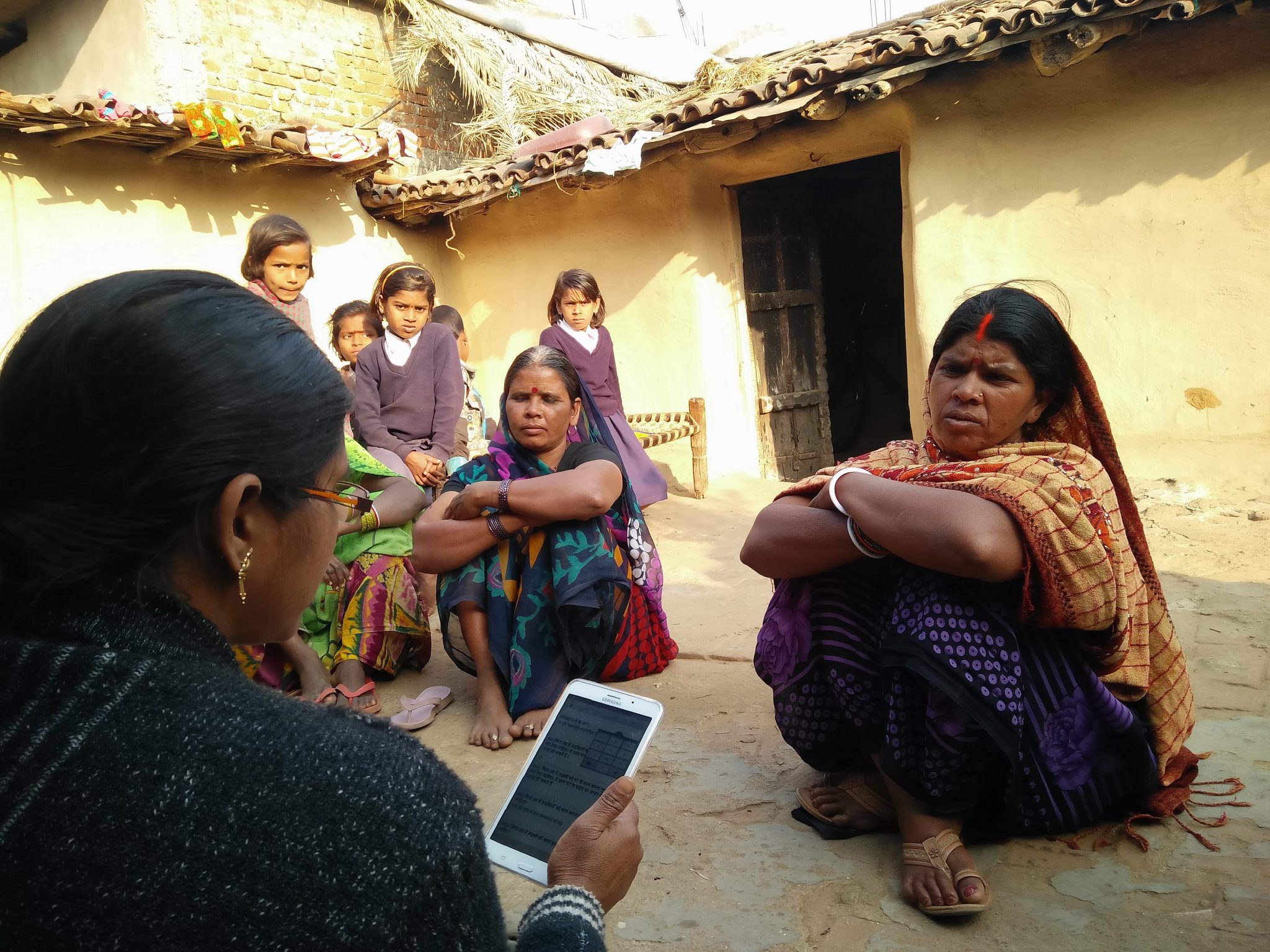Blog Details
This blog covers how the social sector has played a pro-active role in relief work across the country since the onset of the novel coronavirus and highlights the challenges, the need for adapting to the new normal, and how there is an increased degree of cohesion among organisations working in the developmental sector.
The novel coronavirus has impacted every facet of our lives in ways that has forced homo sapiens to come up with innovative solutions. Collaboration and resilience were seen as important tools to cope up with this crisis. Strict lockdown and quarantine measures were considered imperative to curb the spread of the virus resulting in a complete disruption of the existing social order. Even though the pandemic has largely impacted the lives of people belonging from different strata of the society, however, some sections like the migrant workers, poor, destitute, and the vulnerable have been affected a little more than others. As the lockdown kicked in, the daily wage workers, migrant labourers were immediately cut off from their sources of income and had to lose their livelihoods. This sheds light on the humanitarian aspect of the society wherein people came together and helped the ones in need. The Private bodies-through CSR initiatives along with the Central and State governments routed funds for immediate relief work.
The social sector was seen to actively take part in fund raising and supplementing the government’s efforts across the country to mitigate the ravages caused by the coronavirus. Organisations were and are still continuing to distribute food, hygiene kits, monetary help, crucial information, transportation facilities to vulnerable and marginalised population like migrant workers, sex workers, waste pickers families and daily wage workers.
On one end while the social sector was receiving accolades by Amitabh Kant, CEO of NITI Aayog for their contribution to aiding COVID-relief in the country, on the other hand this pandemic adversely impacted them on several fronts, threatening their capacities and sustainability . ‘The Impact of COVID-19 on India’s Nonprofit organisations’ report by the Centre for Social Impact and Philanthropy (CSIP) which is based on in-depth interviews with 50 leaders of non-profits, highlights some of the core issues challenging the non-profit segment of the social sector.
While 76% of the non-profits surveyed are engaged in relief work, only 70% have received additional funding specific to COVID-19. Given that the funds from CSR and philanthropy have been diverted towards work related to healthcare and other immediate relief, programmatic and operational strategies of non-profits is seen to have taken a back seat. They are lying low and are yet to restructure and revamp their programmes. A good amount of the social enterprises have revised their budgets downward by about 25%, expecting a sustained diversion of funds due to the pandemic. Only 16% of the respondents stated that they could cover current costs for more than a year.
A few organisations are encouraging employees to learn new skills including fundraising which has become a necessity during these times of crisis. The NPOs (Non-profit Organisations) and NGOs which are reliant on corporate bodies for receiving CSR funds are susceptible to face limitations in terms of securing funds for their initiatives. This is primarily because huge amounts of CSR funds which earlier was routed through organisations working at the grassroots level have now been directed towards the PM CARES Fund. On the other hand, non-profits dependent on international funders have received support and flexibility in terms of fund expenditure and decision making however, this may undergo certain limitations in case these unprecedented times continue to last in the future as well. This would have significant impact on the social development sector primarily because this sector heavily relies on in-person interventions necessitating human contact.
Even within the social development sector, industries that heavily depend on collecting data from the field or gauging the field realities are placed in an uncomfortable situation. COVID-19 has obstructed on-field surveys for months to come. The sudden lockdown has dismantled the pre-COVID mode of data collection methods and has urged people to adapt to new virtual ways of data collection. This has also resulted in operations being halted as many players lack the preparedness for the digital switch. This therefore also implies that ground-level data that facilitates decision making and policy formulation to aid the marginal and vulnerable communities also run the risk of being adversely impacted in the longer run.
Lockdowns and self-quarantine measures to contain the spread of COVID-19 implies that social researchers and data collectors who engage in fieldwork will have to switch to digital and remote data collection and research methods to continue their work. In the survey report, non-profits also stated the need to adopt digital technology to allow remote work and update their operations and programmes to digitise service delivery, so that the communities they are working for do not continue to be at a disadvantage. Therefore, there is a broader consensus among different players in the social development sector to use technology and switch to a digital mode of operation.
Much like the other sectors including IT, BPOs, and InfoTech industries social sector would also gradually use technology to continue their operation. As we move to a ‘new normal’ in the post-COVID world, research and data collection will also flow in a similar direction. Even though there is a debate around the feasibility and authenticity of the “data” collected through virtual means it is needless to say that the world order is open to accepting new changes and come up with innovative solutions to combat the situation at hand.
Faced with the dilemma of collecting reliable data without face-to-face interaction, digital and remote methods of data collection, and management like rapid surveys through mobile phones and SMS, Computer-assisted telephone interviewing (CATI) and Interactive Voice Response Survey (IVR) have been gaining ground among researchers and organisations.
While phone surveys allow for high-frequency data collection at a lower cost, they can pose challenges in terms of lack of verbal cues, establishing rapport, or problems when a person doesn’t own a phone. SMS surveys have also proved beneficial in terms of increasing response rates by sending reminders. Another limitation that remote surveys pose is an ethical aspect. More time needs to be dedicated over the phone in explaining the purpose of the survey and research project so that it is clear, and the respondents can give their consent.
Nonetheless, organisations are adapting their projects and programmes to the new digital ways while being aware of the limitations and trying to come up with ways to mitigate the shortcomings. We at Outline India have also started to transition to alternate modes of primary data collection. We have switched from in-person to virtual surveys including web surveys, email surveys, and phone surveys. We have also been using our tech tool Track Your Metrics to collect quick data from the field to inform the policymakers about the current situation, which has been extremely crucial especially in light of the current pandemic. This not only allows us to understand the ground realities but also aids in maintaining social distancing protocols outlined by the government.
Additionally, other players like ID insight have initiated a Data on Demand Initiative which offers remote/ mobile-phone-based data collection services to support COVID-19 response efforts. Innovation for Poverty Action has launched Research for Effective COVID-19 Responses, or RECOVR to generate rigorous evidence, advise governments, and to bring together partners across the research-to-policy sector to rapidly provide decision-makers with rigorous data and evidence to mitigate the impacts of the crisis. The World Economic Forum again has also launched a COVID Social Sector Mobilization Platforms to bring together leading organizations and actors from civil society, social innovators, and the philanthropic community to respond to the immediate crisis and shape the medium-term policy and action that will be needed post-crisis.
Contactless research is going to persist for the foreseeable future in the post-COVID world and the social sector must adapt and digitise to manifest these changes. As organisations innovate to mitigate the limitations of virtual surveys, it is crucial to remember the fundamentals of field research. Continuous communication with the field researchers should be maintained, social media must be strengthened, and funding sources must be diversified.
To sum up, it is interesting to note that with all its evils and shortcomings the pandemic has to a certain extent facilitated cooperation among different bodies and has elucidated the intertwined nature of our society at large. It has aided us in coming up with innovative solutions, adapt to virtual means of communication, and collectively combat crucial life problems. The pandemic highlights the importance and undaunted power of collective social resilience as we together as a community sail through this crisis.








David Angel Makel
IT ConsultantIt is a long established fact that a reader will be distracted by the readable content page looking at its layout point of using normal